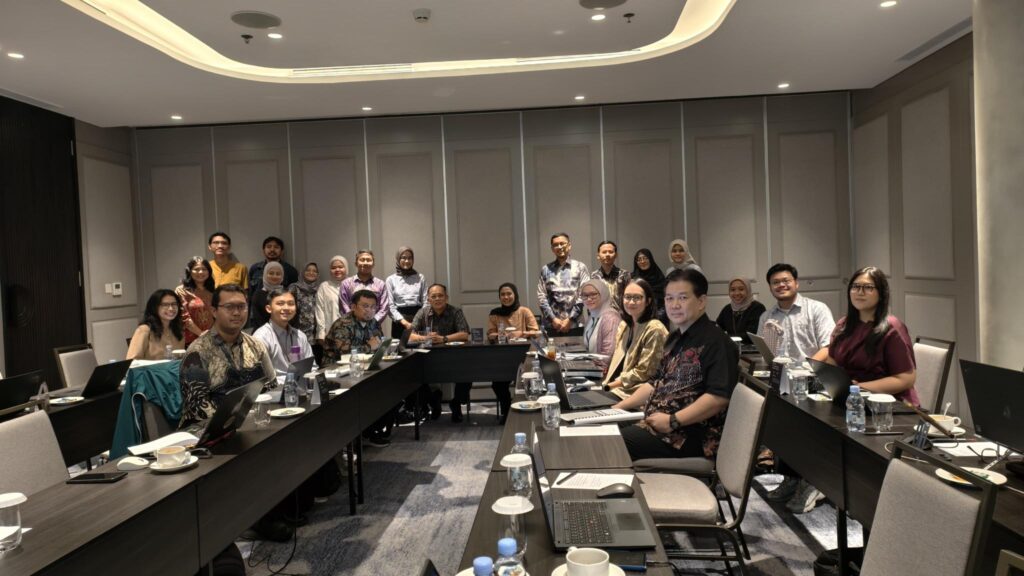- GCIEP and Bappenas are collaborating to improve accessibility in urban areas across Indonesia.
- They are developing a consistent, evidence-based assessment for projects arising from cities’ sustainable urban mobility plans (SUMPs).
- Pilot testing of a SUMP Appraisal Framework took place in June and July 2025, resulting in key recommendations and refinements.

The first pilot test for the SUMP Appraisal Framework with Bappenas.
Improving accessibility in cities across Indonesia was the aim of recent pilot tests facilitated by the Indonesian National Development Planning Agency, Bappenas, and the Green Cities, Infrastructure and Energy Programme (GCIEP).
Indonesia’s commitment to low-emission, climate-resilient and inclusive development is embedded in the National Medium-Term Development Plan (RPJMN) 2025-2029, with sustainable urban transport a key priority. To support this, Bappenas has developed a sustainable urban mobility plan (SUMP) to provide sustainable mobility to, through and within metropolitan areas.
The urban areas of Medan, Bandung, Makassar, Semarang, Surabaya and Denpasar have now developed their own SUMPs with varying levels of detail.
However, progress is hindered by the absence of a standardised framework to assess SUMP project proposals. This is compounded by limited synchronisation between central and local government planning in addition to lack of awareness around climate-environmental aspects and gender equality, disability and social inclusion (GEDSI).
To ensure a consistent, evidence-based approach, Bappenas and GCIEP are developing a SUMP Appraisal Framework that integrates the UK’s Five Case Model. This is a comprehensive framework for developing and appraising public projects, which ensures proposals are robustly assessed by examining the strategic rationale and economic value, as well as the commercial viability, financial affordability and management capacity required for successful delivery.
Pilot testing of the SUMP Appraisal Framework took place on 26 June and 24 July 2025 involving representatives from Bappenas (including the Director of Connectivity and Infrastructure Logistics); Bappeda (the Regional Planning Agency); Dishub (the Transportation Agency); British Embassy Jakarta; and GCIEP’s commercial, financial, legal and technical specialists.
Participants simulated the use of the framework and tools with a sample project case study, systematically examining each assessment criterion, including the scoring mechanism.
This provided the Bappenas team with vital hands-on experience and also threw up some feedback themes. These included the need to clarify scoring definitions (particularly in distinguishing between moderate and negative values); ensuring consistency in terminology across assessment criteria; and considering using passenger volume as a more practical metric than mode share (the percentage of people using each specific type of transportation).
With further refinement of the SUMP Appraisal Framework, the overall aim is to create a pipeline of prioritised, sequenced and investible transport and mobility infrastructure projects and initiatives that are climate-smart and inclusive.
The UK’s Green Cities, Infrastructure and Energy Programme is tackling climate change and extreme poverty by accelerating the delivery of sustainable green cities and climate-resilient infrastructure.
Published
08/08/25
